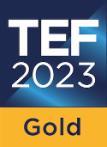Economics and Finance - BSc (Hons)
Discover the dynamic nature of the world of economics and finance. Investigate the economic behaviour of households, companies and governments, analyse investor decision making, and explore the way financial markets operate on our engaging Economics and Finance BSc.
Year of entry
- 2025
Course type
- Single Honours
UCAS code
- LN13
Duration of study
- 3 years / 4 years with international, placement or entrepreneurship year
Why study Economics and Finance at Keele University?
Gain experience using industry software
You will have access to our Bloomberg Lab, set up like a trading room, where you can gain hands-on experience using Bloomberg Professional Service, also known as the Terminal. This software is widely used in the financial industry, making skills in its use highly valued by employers. The Terminal provides privileged access to economic, financial and business real-time data, world news, analysis and reports from some of the world’s biggest financial organisations. You can also utilise the lab in your own time, to gather data for your studies and demonstrate to prospective employers that you have expanded your financial market knowledge by completing the Bloomberg Market Concepts, a free e-learning course available to Keele Business School students.
Teaching Excellence Framework GOLD

Keele University has been awarded the highest rating of gold in the teaching excellence framework (TEF), 2023. The TEF assessment identifies excellence in the educational experience and outcomes of our students, focusing on all undergraduate courses and students.
Academic expertise
Our staff in Keele Business School are active researchers in core areas such as accounting, finance, economics, human resource management, marketing and management. Their academic work will inform your learning, incorporating recent theories and current themes to open discussion in your subject area. There are professional support staff on hand to answer any queries you may have during your undergraduate studies at Keele.
Our academics in Keele Business School are multicultural and multinational, bringing an international aspect to the School’s teaching, research and business activities.
Additional opportunities
There are a range of additional opportunities available when studying this course.
Please note, undertaking one may impact upon the availability of another.
Strengthening your employability
Work placement year*
In an increasingly competitive job market, employers are seeking to recruit employees who have high-level knowledge, skills and an understanding of the workplace. Choosing a work placement year between your second and third year is a fantastic way to gain industry experience. It can provide a valuable insight into what working in a specific area of business is like, gives you the chance to familiarise yourself with the professional working environment and develop professional contacts, and provides the opportunity to apply the theory you’ve learnt on your degree course.
*Students who require a visa to study in the UK may be able to add in a work placement depending upon the programme. The ability to add a work placement is dependent upon the UK Immigration rules at the time of the request. It may be that for some programmes students will not have the option to request a placement period to be added to their programme before they arrive in the UK and would need to apply for a new visa. There is no guarantee that a placement will be provided and that students who have a visa are subject to a number of restrictions on the type of work, including placements they can undertake.
International year
In between years two and three of your studies you can choose to spend a year or a semester studying abroad. This exciting opportunity enables you to understand your field from different cultural perspectives and to establish international networks.
It also shows you have the personal attributes to embrace new experiences which can enhance your employability. We offer exchange opportunities with a wide variety of partner institutions.
Entrepreneurship year
Showcase your innovative abilities and ideas to develop your business aspirations. If you’ve ever wanted to establish your own start-up or have been inspired by your studies this entrepreneurship year is an amazing opportunity to develop your own business idea.
The entrepreneurship pathway is available to UK and international students. For international students, the availability of the entrepreneurship pathway is subject to the latest visa regulations.
Entry requirements
The following section details our typical entry requirements for this course for a range of UK and international qualifications. If you don’t see your qualifications listed, please contact us to find out if we can accept your qualifications. If you don't think you'll meet the entry requirements specified, you may be able to gain entry to this course via a Foundation Year.
Typical offer
Please ensure that you read the full entry requirements by selecting your qualifications from the dropdown menu below. This will include any subject specific, GCSE/Level 2 Maths, and English language requirements you may need.
Please select your qualification from the drop-down list below for the full entry requirement information
A Level
BBC in three A Levels.
Contextual Offer: CCC in three A Levels.
You will also need: 4 / C in GCSE Maths or Level 2 Functional Skills Maths, plus an English language qualification (see below).
BTEC Extended Diploma / National Extended Diploma
DMM in any BTEC Extended Diploma / National Extended Diploma.
Contextual Offer: MMM in any BTEC Extended Diploma / National Extended Diploma.
You will also need: 4 / C in GCSE Maths or Level 2 Functional Skills Maths, plus an English language qualification (see below).
BTEC National Diploma / Diploma
Distinction and Merit in any BTEC National Diploma / Diploma and C in one A Level, or Merit and Merit in BTEC Diploma and A in one A Level.
You will also need: 4 / C in GCSE Maths or Level 2 Functional Skills Maths, plus an English language qualification (see below).
BTEC National Extended Certificate / Subsidiary Diploma
Distinction in any BTEC National Extended Certificate / Subsidiary Diploma and CC in two A Levels, or Merit in any BTEC National Extended Certificate / Subsidiary Diploma and BB in two A Levels.
You will also need: 4 / C in GCSE Maths or Level 2 Functional Skills Maths, plus an English language qualification (see below).
T Level
Merit in any T Level.
You will also need: 4 / C in GCSE Maths or Level 2 Functional Skills Maths, plus an English language qualification (see below).
International Baccalaureate Diploma
554 in three Higher Levels or 29 points.
Contextual Offer: 444 in three Higher Levels or 27 points.
You will also need: 4 / C in GCSE Maths or Level 2 Functional Skills Maths, or 3 in IB Middle Years Maths, or 3 in IB Diploma Standard Level Maths (any), plus an English language qualification (see below).
International Baccalaureate Career-Related Programme
We encourage applications with the IBCP but recognise that your combination of qualifications may differ depending on where you are studying.
If you are taking a BTEC National Diploma / Diploma with one or more Higher Levels, your offer will be similar to our BTEC + A Level offer (see 'BTEC National Diploma / Diploma') but with an HL requirement of 6 for A, 5 for B, or 4 for C.
For any other combination, please contact the University Admissions Team for advice.
Access to HE Diploma
112 UCAS points in any Access to HE Diploma including Distinction in at least 15 Level 3 credits.
You will also need: 4 / C in GCSE Maths or Level 2 Functional Skills Maths, plus an English language qualification (see below).
Welsh Baccalaureate / Bagloriaeth Cymru
The Advanced Skills Challenge Certificate is equivalent to one full A Level at the same grade and can be included alongside 2 other A Levels in a standard A Level offer for this course (see A Level). All subject specific requirements will still need to be met.
Scotland - Highers and Advanced Highers
BCCCC in five Highers, or CD in two Advanced Highers and CC in two Highers, or CCD in three Advanced Highers.
You will also need: C in National 5 Maths, or 4 / C in GCSE Maths or Level 2 Functional Skills Maths, plus an English language qualification (see below).
Extended Project Qualification (EPQ)
If you have B or higher in the EPQ and are studying A Levels, BTEC, the International Baccalaureate Diploma, or an Access to HE Diploma, you will typically receive an alternative offer which will be lower than the standard offer. Please see 'Alternative and contextual offers' below.
Core Maths
If you have B or higher in Core Maths and are studying A Levels, BTEC, the International Baccalaureate, or an Access to HE Diploma, you will typically receive an alternative offer which will be lower than the standard offer. Please see 'Alternative and contextual offers' below.
Ireland - Leaving Certificate
H3, H4, H4, H4, H4, H4 in the Irish Leaving Certificate.
You will also need: O4 / H6 in Maths, plus an English language qualification (see below).
China - Gaokao
70% in the Gaokao.
You will also need: 60% in Senior Secondary School or Gaokao Maths, plus an English language qualification (see below).
India - Standard XII
Average of 65% from four subjects in the ICSE, CBSE or Western Bengal Standard XII, or average of 70% from four subjects in any other Standard XII.
You will also need: 6 or C2 in Secondary School Examination Maths, or Pass in Standard XII Maths, plus an English language qualification (see below).
Germany - Abitur
2.4 overall average in the Abitur.
You will also need: 10 in Maths in the Abitur, plus an English language qualification (see below).
France - Baccalaureate
12 in the French Baccalaureate / International Option Baccalaureate / Baccalauréat Français International.
You will also need: 10 in Maths in the Baccalaureate, plus an English language qualification (see below).
Hong Kong - Diploma
443 from two electives and one core subject in the HKDSE.
You will also need: 2 in HKDSE Maths, plus an English language qualification (see below).
Spain - Bachillerato
Overall average of 7 in the Título de Bachillerato.
You will also need: 5 in Graduado en Educación Secundaria (GES) Maths or 6 in Título de Bachiller Maths, plus an English language qualification (see below).
Italy - Diploma di Esame di Stato
75% in the Esame di Stato.
You will also need: 5 in Maths in the Diploma, plus an English language qualification (see below).
Cyprus - Apolytirion
17.5 / 83% in the Apolytirion.
You will also need: 14 in Maths in the Apolytirion, plus an English language qualification (see below).
Portugal
Overall average of 15 in a Secondary Certificate.
You will also need: 10 in Secondary Certificate Maths, plus an English language qualification (see below).
Canada - Diploma
60% / BCCCC in five courses in the Grade 12 Diploma.
You will also need: 50% in Grade 11 Maths, plus an English language qualification (see below).
Kenya - KCSE / Diploma
We do not accept the Kenya Certificate of Secondary Education for direct entry. However, you can apply to study an International Foundation Year at Keele University International College. On successful completion, you can progress to an undergraduate degree at Keele.
We may accept a two year Diploma. Please contact the University Admissions Team for advice.
Nigeria - Senior School Certificate / OND
We do not accept the Senior School Certificate (WAEC or NECO) for direct entry. However, you can apply to study an International Foundation Year at Keele University International College. On successful completion, you can progress to an undergraduate degree at Keele.
We may accept an Ordinary National Diploma with GPA of 2.5 or a Merit / Lower Credit. Please contact the University Admissions Team for advice.
USA - Advanced Placement
443 from three Advanced Placement subjects.
You will also need: C in Grade 12 High School Diploma Maths, plus an English language qualification (see below).
Ghana
We do not accept the West African Senior School Certificate Examination for direct entry. However, you can apply to study an International Foundation Year at Keele University International College. On successful completion, you can progress to an undergraduate degree at Keele.
Sri Lanka - Advanced Level
BBC in three Advanced Levels.
You will also need: C in O-Level Maths, plus an English language qualification (see below).
Malaysia - STPM
BBC in three Principal Level subjects in the STPM.
You will also need: C in SPM Maths, plus an English language qualification (see below).
Pakistan - Secondary School Certificate
We do not accept the Secondary School Certificate for direct entry. However, you can apply to study an International Foundation Year at Keele University International College. On successful completion, you can progress to an undergraduate degree at Keele.
Singapore - A Levels (H2)
BBC in three H2 Levels.
You will also need: C in O-Level Maths, plus an English language qualification (see below).
European Baccalaureate
70% overall.
You will also need: 6 in European Baccalaureate Maths, plus an English language qualification (see below).
NCUK
Pass NCUK Foundation Year with BBC and a C in EAP English Language module and grade A in EAP for Nursing courses.
You will also need: 4 / C in GCSE Maths or international equivalent.
Uganda - Advanced Certificate of Education
BBC in three Principal Level subjects in the Advanced Certificate of Education.
You will also need: 6 in UACE or UCE Maths, plus an English language qualification (see below).
Zimbabwe - Advanced Level GCE
BBC in three Advanced Level subjects.
You will also need: 4 / C in GCSE Maths or Level 2 Functional Skills Maths, plus an English language qualification (see below).
English language requirements
All of our courses require an English language qualification or test. For most students, this requirement can be met with a 4 or C in GCSE English. Please see our English Language guidance pages for further details, including English language test information for international students. For those students who require an English language test, this course requires a test from Group A.
Alternative and contextual offers
We're committed to ensuring equality of opportunity to all our applicants with the potential and motivation to succeed, regardless of background. That's why we operate a range of alternative offer schemes with clear eligibility criteria, including contextual offers, offers for those studying within the Keele region, and recognising a range of additional qualifications in your offer.
General information
The entry grades outlined in this section indicate the typical offer which would be made to candidates, along with any subject specific requirements. This is for general information only. Keele University reserves the right to vary offer conditions depending upon a candidate's application.
Co-located with businesses
As a Keele Business School student, you will study alongside innovative companies that are based in the business school building, a hub for fostering networks and linking with industry.
Internships, enterprise and knowledge exchange opportunities
Keele Business School is located at the heart of the Keele University Science & Innovation Park, one of the leading developments of its kind in the UK. The Park offers companies a business environment that provides an innovative research culture, combined with academic expertise and the University’s specialist resources, with a variety of opportunities for students to get involved, from internships, knowledge exchange partnerships, and student enterprise initiatives.

Professional qualification exam exemptions
Some of our accounting, finance and quantitative methods modules, if passed successfully, entitle you to exemptions in some of the professional qualification exams of the main professional accountancy bodies such as Chartered Institute of Management Accountants, (CIMA), Association of Chartered Certified Accountants (ACCA), and the Chartered Financial Analyst Institute (CFA).

"I chose to study at Keele because of its diversity and freedom of choice, it’s one of the few university that offered a combined honours degree with the chance to add in additional modules to compliment my studies. The Keele experience is a truly unique one, it’s so much more than just a university, it’s where friends become family, halls of residence become second homes. It also gives you a learning experience that lasts a life time."
PRME Champions
Keele Business School (KBS) has been selected for the 2024-2025 cohort of PRME Champions. Consisting of 47 businesses and management schools from around the world, The Principles for Responsible Management Education (PRME) is an initiative of the United Nations Global Compact, focused on raising the bar for sustainable business education. More information about PRME Champions can be found here.

Foundation year
Our Foundation Year provides an excellent alternative route to Keele, providing a unique opportunity to better prepare for your chosen degree, and with guaranteed entry onto your undergraduate course once you successfully complete your Foundation Year.
This extra year of study can improve your academic skills, expand your subject knowledge, give you a better understanding of higher education and, perhaps most importantly of all, build your confidence.
Keele University is consistently ranked among the top universities for student satisfaction, and we have over 70 years' experience of teaching a foundation year to students. On the Keele Foundation Year, you'll study on campus, joining our undergraduate community from the outset, with access to all the facilities and support that you'd get as an undergraduate student at Keele.
The information in this Foundation Year section is for UK/Home applicants. Where an international Foundation Year is available, please see the 'Information for international students' tab.
The information within this page is for students wishing to start their studies in September. If you would like to start this course in January, please visit our January pages for further details.
Course content
Our Foundation Year allows you to develop your critical thinking, academic reading, writing, and communication study skills along with subject-specific knowledge and skills which will be invaluable in your academic studies and beyond. Upon meeting the progression criteria and successfully completing our Foundation Year, you will automatically progress into your Keele undergraduate degree with the confidence that you have the skills, and knowledge needed to successfully complete your course.
This Foundation Year is a two-semester programme which provides a tailored pre-degree programme of study to better prepare you for the BA (Hons) Economics and Finance degree. For example, the Foundations of Business 1 module will help you to develop appropriate investigative skills in order to analyse financial information and make informed business decisions. Course content has been developed in collaboration with degree teaching teams, so that by the time you begin Year 1, you will be ready to excel at your studies, as the majority of our Foundation Year students do. Throughout the programme, you will develop subject-specific and broad-based skills that will be invaluable in your academic career and beyond.
Find out more about the Keele Foundation Year, including information about teaching and assessment methods by visiting the Foundation Year homepage.
Course structure
The module details given below are indicative, they are intended to provide you with an idea of the range of subjects that are taught to our current students. The modules that will be available for you to study in future years are prone to change as we regularly review our teaching to ensure that it is up-to-date and informed by the latest research and teaching methods. The information presented is therefore not intended to be construed and/or relied upon as a definitive list of the modules available in any given year.
Semester one modules
| FYO-00247 | Foundations: Breaking the code - Understanding Academic Writing | 15 credits |
| FYO-00249 | Foundations of Business 1 | 15 credits |
| FYO-00251 | Foundations of Business 2 | 15 credits |
| FYO-00253 | Foundations of Business 3 | 15 credits |
Semester two modules
| FYO-00255 | Advancing Business | 30 credits |
| FYO-00271 | University Research Portfolio | 30 credits |
Entry requirements
The entry grades outlined in this section indicate the likely offer or range of offers which would be made to candidates along with any subject specific requirements. This is for general information only. Keele University reserves the right to vary offer conditions depending upon a candidate’s application. Read more about our undergraduate entry requirements.
- 40 UCAS points including at least one Level 3 qualification (such as an A level, BTEC, Access Course, or T level)
- Plus C in GCSE English / Level 2 Functional Skills English and C in GCSE Maths / Level 2 Functional Skills Maths
How to apply
Students will need to apply for BA (Hons) Economics and Finance with Foundation Year (UCAS code LN31) through UCAS at www.ucas.com
Direct entry students
If you already have your qualifications, are not expecting any further results and only wish to apply to Keele, please contact the Admissions Office directly.
The information in this Foundation Year section is for UK/Home applicants. Where an international Foundation Year is available, please see the 'Information for international students' tab.
We also offer a January start for some of our Foundation Year courses. Adopting a blended learning approach, the January start is particularly useful for students wishing to return to education following time out of studying, or who are seeking a flexible approach to their Foundation Year studies. Our January start is available across most of our Science, Humanities, Social Science, Health and Business courses.
Whilst still being a full-time course, our blended delivery model combines live teaching sessions - both online and on-campus - with self-directed study, enabling you to predominantly study at a time that suits your lifestyle. You will benefit from weekly online taught sessions which encourage you to engage with your teachers and peers.
In addition to online study there will be a series of full study days that you will be required to attend throughout each semester. These sessions may include lab-based activities, group work, review of course and assessment materials studied online. They will emphasise opportunities for you to deepen your knowledge and understanding of your chosen route.
Please refer to the September start tab for more information about the entry requirements and what you will study. The modules that you will take on a January start Foundation Year will be similar to those for the September start, but on a compressed timescale and tailored to a blended learning approach (with the majority of learning taking place online).
For more information, including fees, the UCAS code for this course, how to apply, and how you will be taught, please visit our January Start Foundation Year webpage.
Our International Foundation Year is delivered on campus through Keele University International College (KUIC). Find out more about the International Foundation Year options on the KUIC website.
Boost your employability by applying for a four-year degree with a work placement at companies such as Nintendo and IBM
If you have an idea for a new business venture, this module provides you with the time, space and expertise to develop it
Access economic, financial and business real-time data, world news, analysis and reports in our Bloomberg Financial Lab
Discover the Keele difference
Everything’s on your doorstep at Keele, and you’ll soon feel at home and make friends wherever you go.
We help students manage their money and ensure that they receive any funding for which they may be eligible.
Make yourself more employable after graduation by taking advantage of the whole host of additional opportunities.








